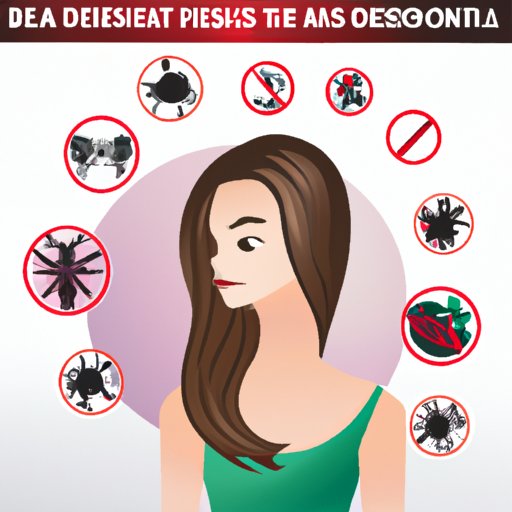
Can Adults Get Fifth Disease?
As adults, we often worry about various illnesses and make sure to take necessary precautions to protect ourselves from them. However, there’s one illness that is commonly associated with childhood, but adults can also contract it – fifth disease. In this article, we’ll explore the surprising truth that adults can get fifth disease and why it’s important to understand its symptoms, risks, and potential complications.
The Surprising Truth: Fifth Disease Can Affect Adults Too
There is a common misconception that only children can get fifth disease, also known as erythema infectiosum or slapped cheek syndrome. The reason behind this is that the illness is more common in children, and once a person contracts it, they usually develop life-long immunity to it. However, the truth is that fifth disease can affect adults as well.
According to the Centers for Disease Control and Prevention (CDC), more than 50% of adults have been infected with the virus that causes fifth disease at some point in their lives. Furthermore, unlike children who often have mild symptoms, adults may develop more severe symptoms and are at a higher risk of complications.
Beyond Childhood Illnesses: Understanding Fifth Disease in Adults
Fifth disease is caused by a virus called human parvovirus B19. It’s highly contagious and can be transmitted through respiratory secretions, such as saliva, mucus, or nasal discharge. Once the virus enters the body, it invades the bone marrow and begins to attack the red blood cells, leading to anemia in some cases.
The reason why adults may be more susceptible to complications from the illness is that their immune systems may not be as strong as those of children. Additionally, older adults may have other underlying medical conditions, such as autoimmune disorders, that can increase their risk of complications.
Can You Catch Fifth Disease as an Adult? Here’s What You Need to Know
Fifth disease is highly contagious, and it can be easily transmitted from person to person. The virus can be spread through close contact with an infected person, such as hugging, kissing, or touching. It can also be transmitted through airborne droplets, such as when an infected person sneezes or coughs.
Adults who work in healthcare or childcare facilities, or who have close contact with children, are at a higher risk of contracting the illness. Pregnant women are also at an increased risk of complications if they contract the virus during pregnancy.
Fifth Disease and Adults: Recognizing Symptoms and Prioritizing Treatment
The symptoms of fifth disease in adults differ from those in children. While children may develop a rash on their cheeks that looks like they’ve been slapped, adults may only develop joint pain and stiffness, along with a red rash on their arms, legs, and torso. Other common symptoms include fatigue, fever, and headache.
If you suspect that you’ve been infected with fifth disease, it’s important to seek medical attention immediately. There is no specific treatment available for fifth disease, but your healthcare provider can monitor your symptoms and provide supportive care, such as pain relief and fluids.
The Impact of Fifth Disease on Adult Health: Risks and Precautions
While fifth disease typically resolves on its own without any complications, in some cases, it can lead to more serious health issues. For example, complications such as anemia, joint pain, and swelling may occur in adults who are immunocompromised or who have underlying medical conditions, such as sickle cell disease or rheumatoid arthritis. Pregnant women who contract the virus are also at risk of miscarriage or fetal anemia.
If you’ve been diagnosed with fifth disease, it’s important to take precautions to prevent the spread of the virus. Avoid close contact with pregnant women, infants, and people who are immunocompromised. Also, make sure to wash your hands frequently, cover your nose and mouth when coughing or sneezing, and avoid sharing personal items, such as utensils and glasses.
Preventing Fifth Disease in Adults: Steps to Take for Better Health
The easiest way to prevent contracting fifth disease is to avoid close contact with people who are infected, especially if you’re pregnant or have a weakened immune system. Practicing good personal hygiene and cleanliness, such as washing your hands frequently, can also help prevent the spread of the virus. If you work in a healthcare or childcare facility, make sure to follow the recommended infection prevention and control practices.
Conclusion
In conclusion, fifth disease is an illness that can affect adults too. While the symptoms may differ from those in children, the risk of complications and long-term health issues is higher in adults, especially those with weakened immune systems or underlying medical conditions. To protect yourself and others from the virus, it’s essential to practice good personal hygiene and cleanliness and seek medical attention if you suspect that you’ve been infected with fifth disease.




